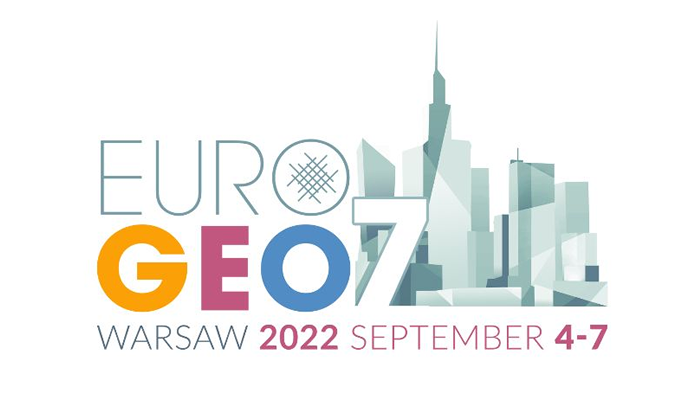The Polish Chapter of the International Geosynthetics Society (IGS) has announced that EuroGeo7, the 7th European Regional Conference on Geosynthetics, is moving to 4 – 7 September 2022.
“The decision to postpone EuroGeo7 was made in the interest of the health and safety of everyone participating in the conference,” the organizers wrote in a 2 June 2021 post on LinkedIn. “The organizers of EuroGeo7 are working closely with partners and authorities and will announce a new schedule of extended deadlines shortly. Please keep visiting our website regularly.”
Covid concerns have caused numerous events to move or go online. The IGS’s three regional conferences scheduled for 2020 were all moved, with GeoAmericas going virtual in October 2020, EuroGeo moving first to 2021 and now 2022, and GeoAsia 7 moving to April 2022.
All of that expected movement, alongside so many other geotechnical events shifting, led the IGS to move its flagship quadrennial global event, the International Conference on Geosynthetics, from September 2022 to September 2023. That decision gave EuroGeo organizers a window to slot into that the geosynthetics field had already planned on.
The quadrennial regional conferences offer an invaluable opportunity to engage leading international practitioners of geosynthetics and regional/local regulators, contractors, engineers, and researchers. Those interested in participating in EuroGeo will actually get a new opportunity with the new dates. Organizers will use the extra time to reopen some submission windows. Topics for the conference are listed below.

EUROGEO7 TOPICS
EuroGeo7 is promoting a broad dialogue with its high profile keynote lectures and its sweeping range of topics, including:
- Agricultural Applications
- Coastal Protection
- Direct and Life-Cycle Cost Savings
- Drainage and Filtration
- Durability
- Embankments on Soft Soils
- Environmental Benefits
- Erosion Control
- Geosynthetics as Formwork
- Hydraulic Applications
- Innovations and New Developments
- Landfills
- Lightweight Construction
- Mining
- Monitoring
- Pavements
- Physical and Numerical Models
- Polymeric and Clay Geosynthetic Barriers
- Properties and Testing
- Quality Control and Quality Assurance
- Reinforced Walls and Slopes
- Roads, Railroads and Other Transportation Applications
- Seismic Applications
- Sustainability
- Stormwater Management
- Unpaved Roads
- Wastewater and Fresh Water Storage
Learn more and register: www.eurogeo7.org.












